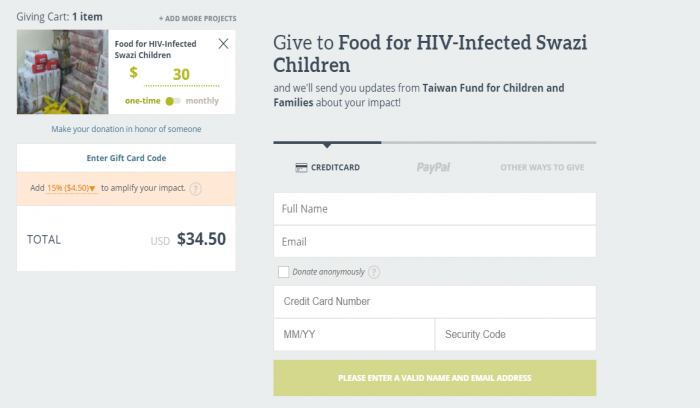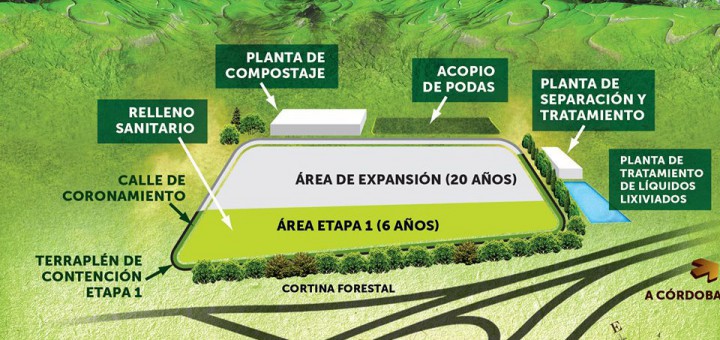FUNDEPS has started a crowdsourcing campaign to assist local communities in Cordoba, Argentina, affected by the intensive use of Agrochemicals (pesticides and fertilizers). From June 12th to 30th, you can help us by donating through Global Giving.
ccording to the UN Report of the Special Rapporteur on the Right to Food (2017), pesticides are responsible for an estimated 200,000 acute poisoning deaths each year. Almost all of these deaths (estimated at 99%) occur in developing countries where legal regulations concerning health, safety and the environment are weaker or less strongly enforced. Agro-chemical spraying of pesticide and fertilizers, implemented by air or ground, have become severe health and environmental hazards for the populations exposed. This is particularly the case when the spraying occurs in the surroundings of neighbourhoods, schools or homes, underscoring the need for environmental protection.
Since 2013, FUNDEPS has been working with communities in Córdoba affected by an intensive exposure to agro-chemical use, in the neighbouring areas. This is a complex problem in all of Argentina, but particularly in Cordoba, a province that relies in agricultural production.
The different aspects of this problem can be seen in:
* The lack of public information on the health risks and effects of the irregular use of agrochemicals, which violates the human right to health and to a safe environment.
* The increased health problems connected to the agro-chemical exposure, such as asthma, allergies, cancer, infertility, abortion and neurological problems, which predominantly affect children, pregnant women, the elderly and rural workers and their families.
* The downplaying of risks and facts, which leads to the rejection of the official complaints of members of the communities by governmental bodies.
Having worked in this area for many years, we have seen a clear need to assist the communities affected by these issues, helping them to guarantee their right to health and to a safe environment. With these ideas in mind, FUNDEPS has launched its first crowdsourcing campaign in the Global Giving platform.
Global Giving is the first and largest global crowdfunding community that connects nonprofits, donors, and companies in nearly every country around the world. Global Giving works to ensure that nonprofits access the tools, training, and support they need to be more effective and make our world a better place. Since 2002, almost 600,000 donors (corregir en español) have raised over $250 million USD in 165 countries.
Our Project ‘Protecting communities exposed to agrochemicals’ aims to strengthen the rights to health and to a safe environment of the local communities affected by the intensive use of agrochemicals. The funds raised will help us increase our work with these communities, and particularly to develop the following activities:
* To organize workshops and trainings to empower the affected communities to understand the risks associated with these activities and the regulations that protect their rights to health and a safe environment;
* To push for the enforcement of the current regulations, and to work for better legal frameworks.
* To conduct research to gather data and information regarding the effects and reach of this problem in the region.
Why Donate?
Your donation will contribute to improve the environment and health of the local communities in Cordoba, through an increased advocacy work, together with the empowered communities.
Your contribution will help us continue to develop our work with the communities, which we have been conducting for many years and has been verified by Global Giving. You will be able to send and receive messages with updates on the implementation.If you are not satisfied with your donation to our project, you will be able to re-direct it to another project of your choice.
What will happen with your donation?
* $10 (USD) can provide families with information on their health and environmental rights.
* $25 (USD) can support one member of the FUNDEPS team to travel to the rural communities to meet with people negatively affected from exposures.
* $50 (USD) can support one workshop to empower the community to fight for their right to a healthy and safe environment.
* $100 (USD) can support academic research of the impacts on health of exposure to agrochemicals in Falda del Carmen.
* $200 (USD) can support research and development of protective local legislation.
* $250 (USD) can provide one family with technical assistance when filing a complaint to the government.
* $300 (USD) can support a media campaign to share the story of those impacted and demand stricter laws.
How to donate?
1. Click here
2. On the right side of the page, select an amount and follow the steps. You can donate using your credit card or PayPal.
ccording to the UN Report of the Special Rapporteur on the Right to Food (2017), pesticides are responsible for an estimated 200,000 acute poisoning deaths each year. Almost all of these deaths (estimated at 99%) occur in developing countries where legal regulations concerning health, safety and the environment are weaker or less strongly enforced. Agro-chemical spraying of pesticide and fertilizers, implemented by air or ground, have become severe health and environmental hazards for the populations exposed. This is particularly the case when the spraying occurs in the surroundings of neighbourhoods, schools or homes, underscoring the need for environmental protection.
Since 2013, FUNDEPS has been working with communities in Córdoba affected by an intensive exposure to agro-chemical use, in the neighbouring areas. This is a complex problem in all of Argentina, but particularly in Cordoba, a province that relies in agricultural production.
The different aspects of this problem can be seen in:
* The lack of public information on the health risks and effects of the irregular use of agrochemicals, which violates the human right to health and to a safe environment.
* The increased health problems connected to the agro-chemical exposure, such as asthma, allergies, cancer, infertility, abortion and neurological problems, which predominantly affect children, pregnant women, the elderly and rural workers and their families.
* The downplaying of risks and facts, which leads to the rejection of the official complaints of members of the communities by governmental bodies.
Having worked in this area for many years, we have seen a clear need to assist the communities affected by these issues, helping them to guarantee their right to health and to a safe environment. With these ideas in mind, FUNDEPS has launched its first crowdsourcing campaign in the Global Giving platform.
Global Giving is the first and largest global crowdfunding community that connects nonprofits, donors, and companies in nearly every country around the world. Global Giving works to ensure that nonprofits access the tools, training, and support they need to be more effective and make our world a better place. Since 2002, almost 600,000 donors (corregir en español) have raised over $250 million USD in 165 countries.
Our Project ‘Protecting communities exposed to agrochemicals’ aims to strengthen the rights to health and to a safe environment of the local communities affected by the intensive use of agrochemicals. The funds raised will help us increase our work with these communities, and particularly to develop the following activities:
* To organize workshops and trainings to empower the affected communities to understand the risks associated with these activities and the regulations that protect their rights to health and a safe environment;
* To push for the enforcement of the current regulations, and to work for better legal frameworks.
* To conduct research to gather data and information regarding the effects and reach of this problem in the region.
Why Donate?
Your donation will contribute to improve the environment and health of the local communities in Cordoba, through an increased advocacy work, together with the empowered communities.
Your contribution will help us continue to develop our work with the communities, which we have been conducting for many years and has been verified by Global Giving. You will be able to send and receive messages with updates on the implementation.If you are not satisfied with your donation to our project, you will be able to re-direct it to another project of your choice.
What will happen with your donation?
* $10 (USD) can provide families with information on their health and environmental rights.
* $25 (USD) can support one member of the FUNDEPS team to travel to the rural communities to meet with people negatively affected from exposures.
* $50 (USD) can support one workshop to empower the community to fight for their right to a healthy and safe environment.
* $100 (USD) can support academic research of the impacts on health of exposure to agrochemicals in Falda del Carmen.
* $200 (USD) can support research and development of protective local legislation.
* $250 (USD) can provide one family with technical assistance when filing a complaint to the government.
* $300 (USD) can support a media campaign to share the story of those impacted and demand stricter laws.
How to donate?
1. Click here
2. On the right side of the page, select an amount and follow the steps. You can donate using your credit card or PayPal.


3. Please note that Global Giving will automatically add a 15% extra to contribute to their work. You can reduce or increase the percentage, by clicking on the arrow in the left side of the screen.

Is it safe to donate on the internet?
Yes, Global Giving is a platform dedicated to receive small donations for NGO projects from all over the world. It is the leading platform in the area, and uses secure servers throughout.
Contact
Carolina Tamagnini, carotamagnini@fundeps.org
3. Please note that Global Giving will automatically add a 15% extra to contribute to their work. You can reduce or increase the percentage, by clicking on the arrow in the left side of the screen.
Is it safe to donate on the internet?
Yes, Global Giving is a platform dedicated to receive small donations for NGO projects from all over the world. It is the leading platform in the area, and uses secure servers throughout.
Contact
Carolina Tamagnini, carotamagnini@fundeps.org




